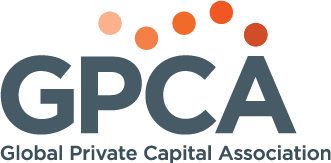Private Equity and Health Care in Emerging Markets
Download the full report here.
The Big Picture: An Introduction to Health Care and Private Equity in Emerging Markets
When TMG Capital invested in Brazil-based insulin producer Biomm Technology in 2013, the private equity fund manager saw an opportunity to address growing domestic demand for pharmaceutical products by creating a national leader in a niche market segment—supported by a government keen on finding a local alternative to international suppliers, one that could address the everyday needs of Brazilians. In the years since TMG’s investment, Brazil has become mired in political crisis and economic recession, confronting fund managers with perhaps the most challenging investment environment in decades. Yet demand for health care in the country has remained resilient, and fund managers continue to see opportunities to address unmet demand for quality and affordable health care products and services. Eduardo Buarque de Almeida, Partner at TMG Capital, attests, “Even in 2015, which was a challenging year for the economy overall, the sector grew by 2.7%. That is why private equity firms are still investing here.”
TMG’s experience with Biomm encapsulates the opportunities available for private equity investors in the health care sector in emerging markets. Taking notice of the sector’s resilience and the factors driving the opportunities in EM health care, investors have become increasingly attracted to the sector. In EMPEA’s 2016 Global Limited Partners Survey, respondents ranked health care among the most attractive sectors in which to gain exposure via EM PE (see Exhibit 1). Bernard McGuire, Managing Director of EMfocused fund of funds manager 57 Stars explains, “The level of interest in the sector stems from its strong growth, persistence and lack of volatility. Governments are increasingly aware of the need to provide better, deeper, cheaper health care solutions for a much broader part of the population. At the same time, rising middle class incomes in a lot of countries mean a greater ability to pay for things above and beyond what the government might offer, so that private insurers can prosper and private clinics can prosper.”

Perhaps unsurprisingly, private fund managers’ recent investment activity largely mirrors heightened LP interest. In 2015, the number of deals and disclosed capital deployed in the health care sector reached the highest levels ever recorded by EMPEA (dating back to 2008), and data from the first half of 2016 reveal no signs of deceleration (see Exhibit 2).
Once institutional investors decide to invest in EM health care, they still must consider why private equity, rather than public markets, is the right channel through which to build exposure to the sector. Here, the rationale is simple: opportunities are much deeper and broader in private markets. While there are just 34 health care companies in the FTSE’s Emerging Markets Index, making up just 3% of the index’s weight, more than 400 EM health care companies have received private investment between 2011- 1H 2016, accounting for 7% of the total (see Exhibit 3). Publicly-listed health care companies also tend to be clustered geographically and by subsector. Such limited availability drives up entry multiples for publicly-held health care companies in emerging markets.
Moreover, data from Cambridge Associates reveal that the performance of private equity (inclusive of venture capital) investments in the health care sector has beaten returns for EM public equities, not to mention the broader pool of private equity and venture capital investments in EM companies across all sectors, over multiple time horizons (see Exhibit 4). In this sense, private investing in the EM health care sector has the potential to be a true source of alpha.

While the track record of EM health care suggests that the sector as a whole has the capacity to outperform, top-line performance figures should not overshadow the complexity of health care investing in emerging markets. Challenges at the fund and investment level persist, with the potential to negatively affect individual fund and deal returns. Hari Buggana, Founder and Managing Director of Indiafocused health care fund manager InvAscent, cautions, “This is a very complex market, and while there’s huge unmet need for health care, investors must also consider the extent to which it is economically viable to service this unmet need and earn a return on capital.” Such concerns can easily be applied to not only India, but all emerging markets. In effect, investors must weigh the structural drivers of the opportunity against the challenges of investing in the space, decide how to access the sector and find managers that can deploy capital effectively and generate value. The following sections of this report address these themes.

